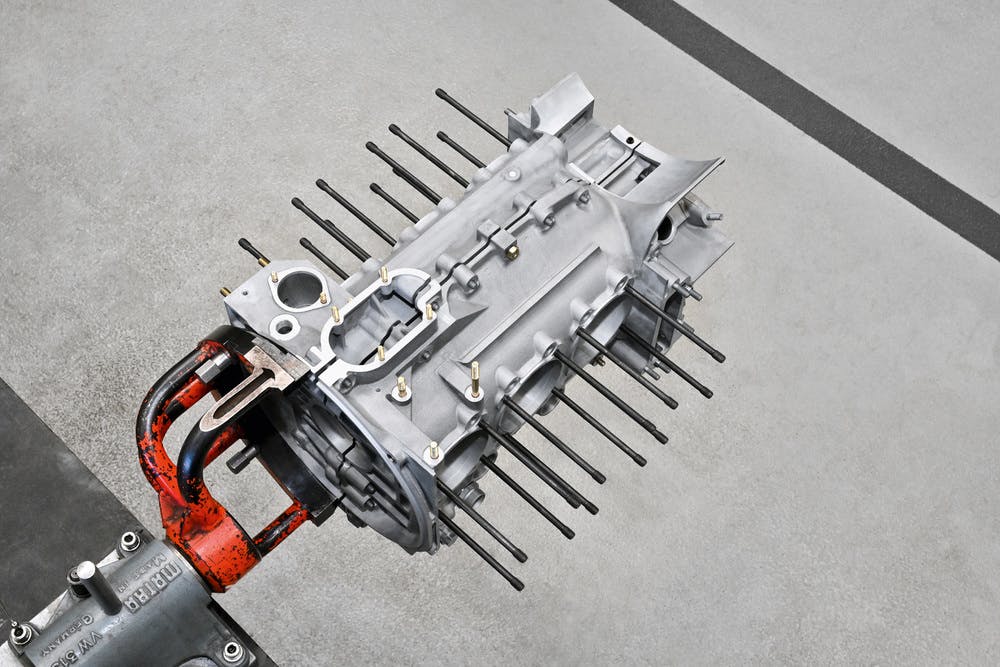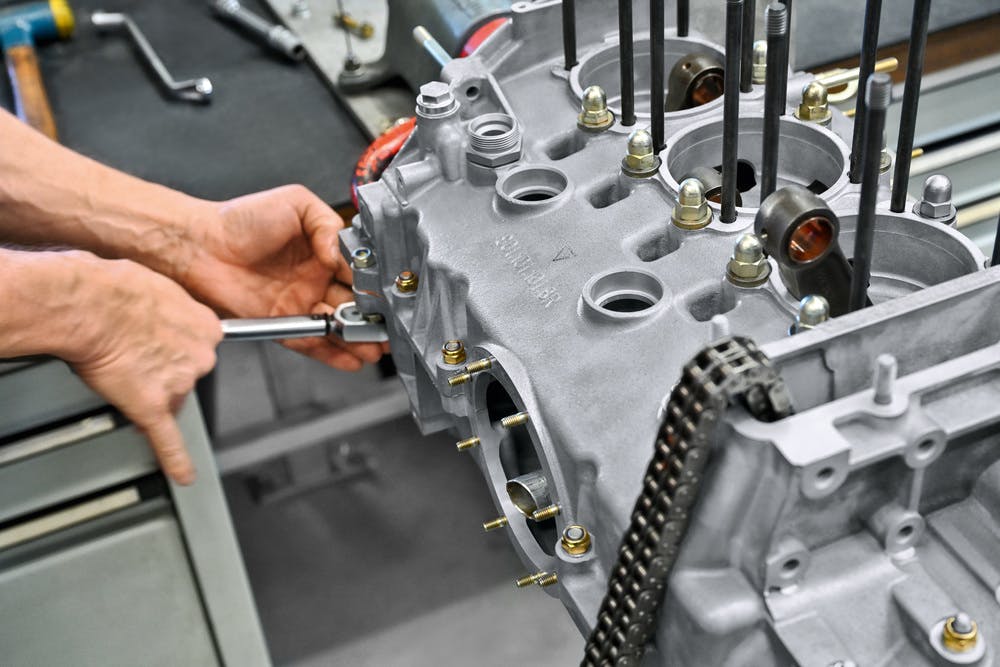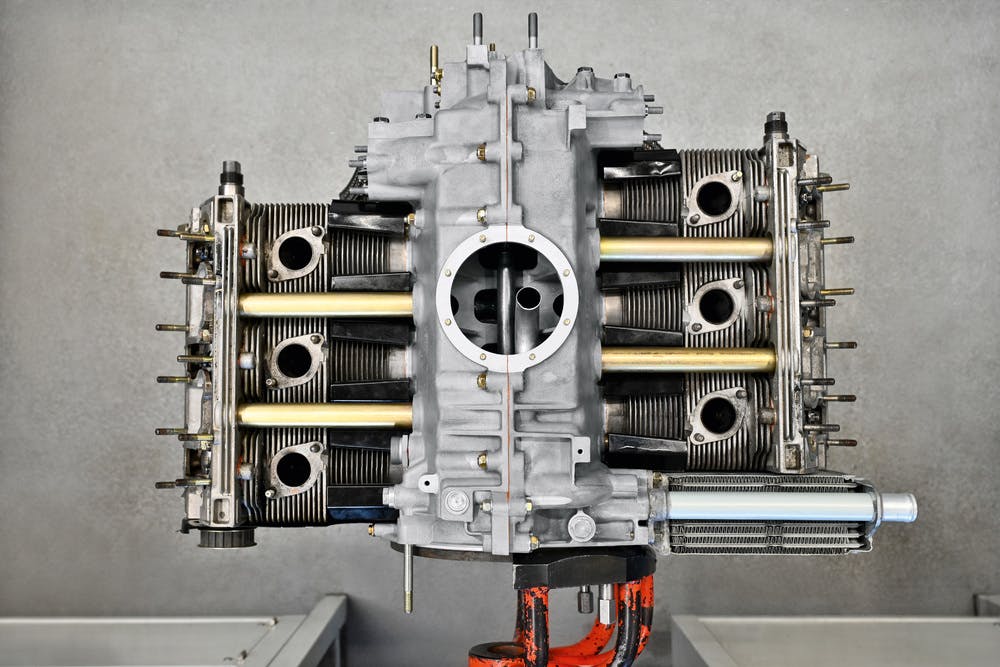Media | Articles
Porsche offers new magnesium crankcases for classic Carreras
Owners of Porsche 911s built between 1968 and 1976 can now buy factory-made magnesium crankcases for complete engine restoration.
The new parts are available for F and G series models with engine capacities of 2.0, 2.2, 2.4 and 2.7-liters, including the Carrera RS 2.7. Until now a cracked crankcase would have meant attempting welding or finding a replacement on the second-hand market, but these fresh parts from the factory will give owners extra confidence in any engine rebuild.
“This reissue closes another gap in our range of spare parts, making it possible to build completely new engines for most classic 911 models,” says Ulrike Lutz, Director of Porsche Classic. “There’s a lot of demand from our customers for true-to-original engine components like this.”
Recreating the crank casings wasn’t straightforward as the original drawings and data were “not entirely decipherable.” That meant Porsche Classic engineers had to quiz former staff members about the components, make blanks from old stock, and generate new CAD data. The re-issued cases are cast using resin-bonded sand cores based on that data. In the casting process these sand cores are destroyed to create the component, which is then machined on a five-axis CNC machine. In total more than 50 different cutting, drilling and milling tools are used to shave just a few microns of material off for a precision finish. Each crankcase is then 3D scanned, with over 1300 measurements taken to ensure it’s up to scratch.
Once the first new part was completed Porsche Classic gave it a rigorous bench test. Using a 2.7-liter engine from the Carrera RS the recreated crankcase was put through weeks of running, before being disassembled again for a thorough inspection. Even the oil was analyzed to check for any unwanted particles.
Marketplace
Buy and sell classics with confidence
These new magnesium crankcases join the aluminum versions that have already been released by Porsche Classic for 1990s 911s, and add to more than 80,000 original parts available to order worldwide. Each year Porsche adds around 2000 more components to its catalog, and, as a result of this factory support, more than 70 percent of all Porsches ever built remain on the road.
Parts can be bought from Porsche Classics partners or Porsche dealerships worldwide and you can browse parts online as well.
***
Check out the Hagerty Media homepage so you don’t miss a single story, or better yet, bookmark it. To get our best stories delivered right to your inbox, subscribe to our newsletters.










Others will catch on. GM for example, has a lot of pre 1980 vehicles people have saved and certain models (Corvettes, Camaro, trucks even) you have a fanbase up to modern. Porsche has the advantage of the “premium price point” is part of the status.
Magnesium is tough to cast and highly volatile when machining. The Germans have the most experience.
I love how Porsche supports their older vehicles. They are one of the few brands that don’t make “disposable” vehicles.
I have always loved them and respected Porsche for that as well
Porsche has exactly the right mindset here, making every air-cooled 911 a forever car. Even the once-unloved 2.7’s are now classic, and it’s heartening to see a manufacturer increasing support for its legacy products.
What about upholstery – especially the driver’s seat. Does Porsche make those for older models?
Magnesium is also very easy to machine compared to other metals. Sawing, punching, drilling, milling, turning, and other processes are smoother when using magnesium, and machining the material requires a significantly lower cutting force and overall production time than other metals.
Retired Journeyman Machinist
ASQ Metrology Instructor